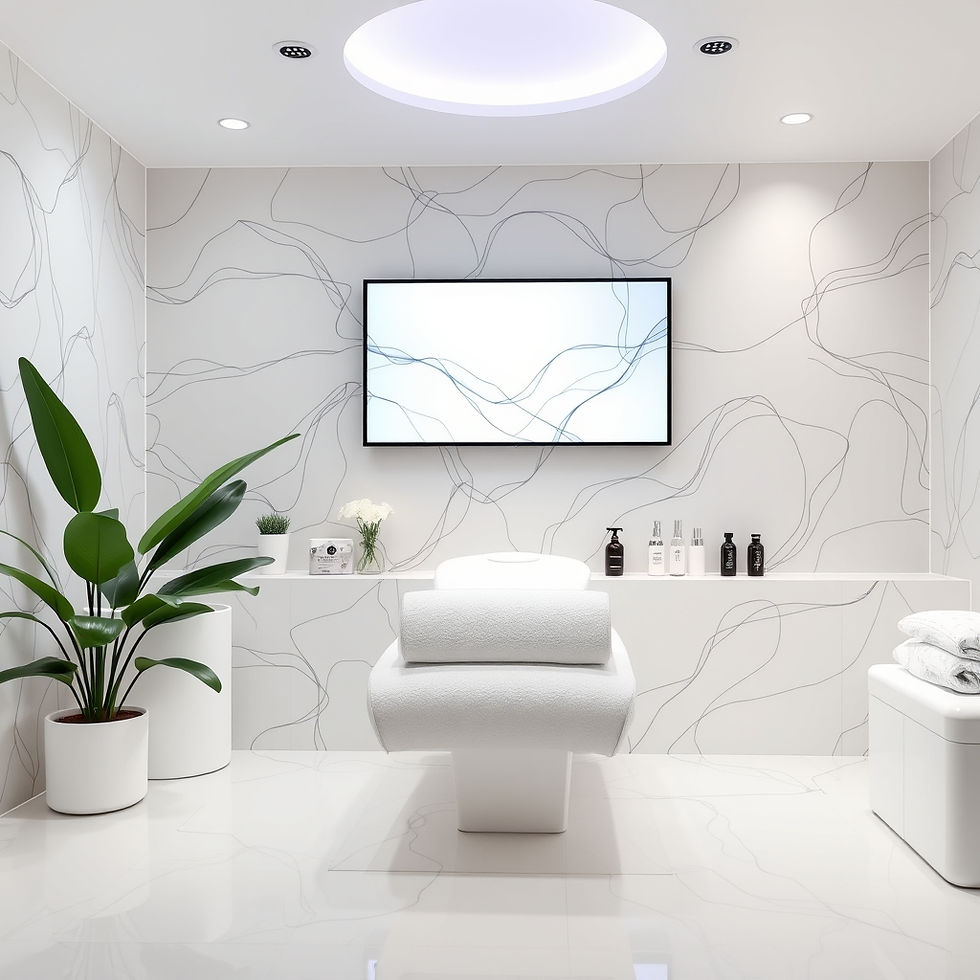The Essential & Most Profitable Patient Group You Should Be Prioritizing
- kathywalton
- Nov 29, 2023
- 5 min read

Menopause, often referred to as 'the change of life,' is a natural and inevitable stage in a woman's life that typically occurs around the age of 51. During this time, the body undergoes significant hormonal shifts, primarily a decrease in estrogen production. This hormonal change has profound effects on a woman's body, including her skin. Symptoms such as hot flashes, mood changes, weight gain, sleep problems, slowed metabolism, and rapid, noticeable aging of the skin are common.
Unfortunately, there seems to be a lack of comprehensive education surrounding these changes, leaving many women feeling unprepared and confused as they navigate this new phase of their lives. This transition can be particularly challenging for those experiencing severe symptoms or those who are unaware of what to expect.
In this context, the role of aesthetic practitioners becomes crucial. They have the opportunity not only to empathize with these women but also to educate them about the changes their bodies are undergoing. By explaining the science behind these changes and providing tailored skincare solutions, practitioners can help alleviate some of the distress associated with menopause and empower women to take proactive steps in managing their skin health during this period6.
Why Invest in High-Quality Skincare?

During menopause, women's skin undergoes significant transformations due to a decrease in estrogen production. This hormonal shift can lead to thinning, sagging, and wrinkling of the skin, as well as an increase in dryness due to reduced sebum production. These changes are more pronounced than those experienced by any other age group, making the skin more demanding and requiring special care.
This is why post-menopausal women should consider investing in higher quality, medical-grade skincare products. These products are specifically formulated with higher concentrations of active ingredients that can penetrate deeper into the skin, effectively combatting the effects of aging. Backed by scientific research, these products are designed to deliver noticeable and longer-lasting results compared to over-the-counter alternatives. Unlike over-the-counter products, medical-grade skincare can provide more noticeable and longer-lasting results.
The use of high-quality, medical grade skincare products can help address specific concerns associated with menopausal skin, such as increased dryness, loss of elasticity, and the appearance of fine lines and wrinkles. By using these products, post-menopausal women can take proactive steps towards managing their skin health, alleviating some of the distress associated with the physical changes brought on by menopause.
Catering to Post-Menopausal Women
The Essential & Most Profitable Patient Group You Should Be Prioritizing

According to Forbes magazine, aesthetic practitioners and skincare brands should pay special attention to menopausal women, who they've termed as "Super Consumers". This demographic is characterized by their significant spending habits and loyalty to brands that cater to their specific needs. As women navigate through menopause, they experience drastic changes in their skin due to hormonal shifts. They seek out products that can effectively address these changes, such as dryness, loss of elasticity, and the appearance of fine lines and wrinkles.
Aesthetic practitioners have a unique opportunity to provide these women with tailored solutions, backed by scientific research, that deliver noticeable and longer-lasting results. By focusing on this group, practitioners not only fill a gap in the market but also build a loyal customer base. These customers are likely to continue investing in high-quality skincare products, making them an essential segment for any aesthetic practice.
Furthermore, this focus encourages a broader conversation around menopause, a topic often misunderstood and under-discussed, especially in professional settings. By catering to the needs of menopausal women, aesthetic practitioners and skincare brands can challenge societal norms, promote inclusivity, and drive change in the industry.
Understanding Post-Menopausal Skin

Post-menopausal skin experiences several changes including increased dryness, decreased elasticity, deepening of wrinkles, and the appearance of age spots. It's essential for women to understand these changes to adjust their skincare routine accordingly.
While it might be tempting to use the same skincare products as before, some ingredients might not be as effective or could even exacerbate skin issues. For instance, products with high amounts of alcohol can further dry out the skin.
The Must-Have Skincare Products
For optimal skincare during menopause, consider incorporating the following into your routine:
1. Start with a gentle cleanser like the Jasmine Probiotic Cleanser or Creamy Cleansing Balm to maintain skin's natural balance.
2. Incorporate exfoliation into their routine with Glow Peel Pads with TCA. This helps to shed dead skin cells which accumulate more due to slower cell turnover during menopause, contributing to a dull complexion. Weekly exfoliation can bring back that glow.
3. Use a targeted serum such as Vitamin CE & Ferulic Acid Serum, Liquid Facelift Serum, or CBD Beauty Serum to address specific skin concerns.
4.Introduce Retinol Cream to their regimen as it aids in exfoliating dead skin cells and boosting collagen production, which tends to decline during menopause.
5. Don't forget a hydrating moisturizer like Whipped Advanced Moisturizer, Apple Stem Cell Moisturizer, or DNA Moisturizer to replenish the hydration that menopause often depletes.
6. Lastly, protect your skin daily with a hydrating, mineral-based, broad-spectrum sunscreen like Hydrating Mineral SPF 50+ to shield your skin from harmful UV rays.
The Psychological Impact

Beyond the physical changes, women often experience psychological impacts associated with skin aging. Feelings of loss of attractiveness or vitality can affect self-esteem. By investing in high-quality skincare, women can not only improve their skin health but also enhance their overall well-being.
Medical-grade skincare offers an effective solution for post-menopausal women looking to navigate the changes in their skin. By understanding their unique needs and concerns, aesthetic practitioners can better serve this patient demographic, offering them the care they need during this transitional life stage.
Importance of Retaining the Menopausal Client-The Essential & Most Profitable Patient Group You Should Be Prioritizing









Comments